-
main-collection-product-grid

Grape Hyacinth Bulbs (Muscari) - Armeniacum
Compact plants are perfect for tight spacesSaleGrape Hyacinth Bulbs (Muscari) - Armeniacum
Compact plants are perfect for tight spacesRegular price As Low As $16.95Regular priceUnit price per$20.99Sale price As Low As $16.95Sale -
main-collection-product-grid
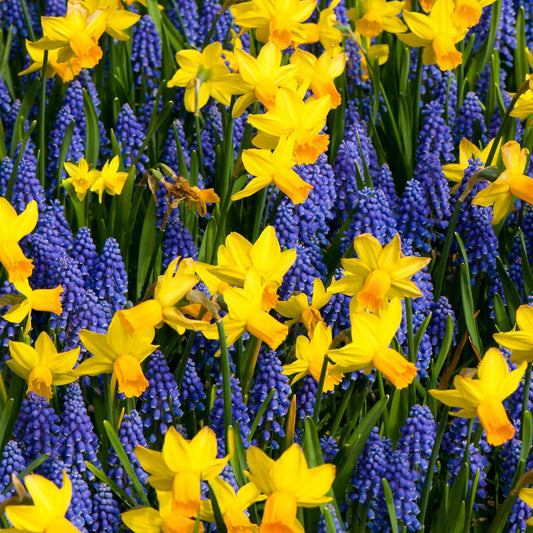
Daffodil Bulbs - Jetfire Daffodil & Grape Hyacinth Mix
Quick to naturalize, this pair makes the perfect spring-blooming groundcoverSaleDaffodil Bulbs - Jetfire Daffodil & Grape Hyacinth Mix
Quick to naturalize, this pair makes the perfect spring-blooming groundcoverRegular price As Low As $11.95Regular priceUnit price per$23.99Sale price As Low As $11.95Sale -
main-collection-product-grid
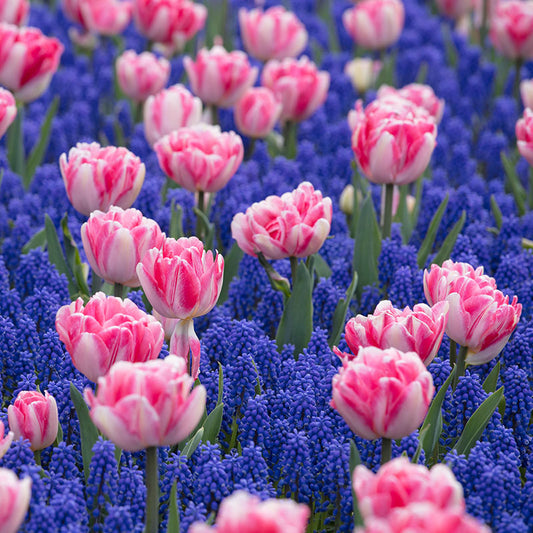
Tulip & Muscari Collection
Opposites attract in this harmonious and cohesive display of bloomsSaleTulip & Muscari Collection
Opposites attract in this harmonious and cohesive display of bloomsRegular price As Low As $17.95Regular priceUnit price per$24.99Sale price As Low As $17.95Sale -
main-collection-product-grid
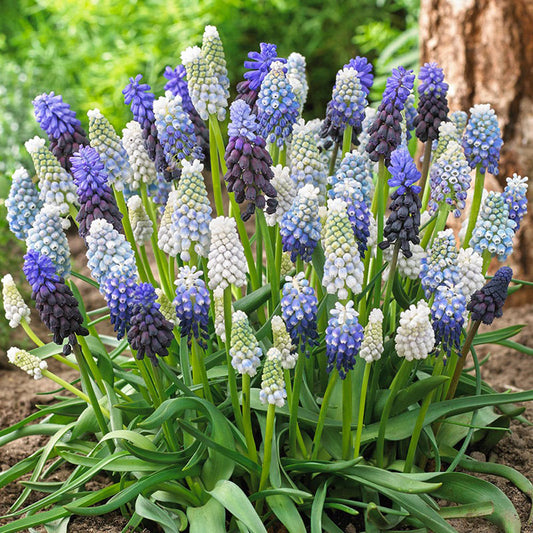
Grape Hyacinth Bulbs (Muscari) - Delft Blue Mix
Everything you love about every other grape hyacinth in one collectionSaleGrape Hyacinth Bulbs (Muscari) - Delft Blue Mix
Everything you love about every other grape hyacinth in one collectionRegular price As Low As $18.95Regular priceUnit price per$21.99Sale price As Low As $18.95Sale -
main-collection-product-grid
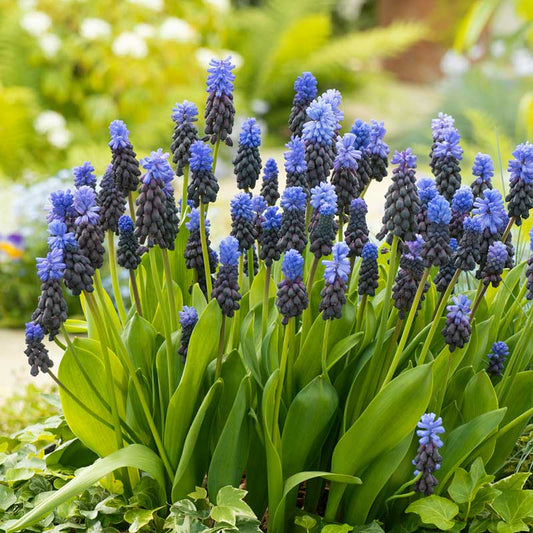
Grape Hyacinth Bulbs (Muscari) - Latifolium
This unique two-toned bloom is among the first to flower in springSaleGrape Hyacinth Bulbs (Muscari) - Latifolium
This unique two-toned bloom is among the first to flower in springRegular price As Low As $11.95Regular priceUnit price per$19.99Sale price As Low As $11.95Sale -
main-collection-product-grid
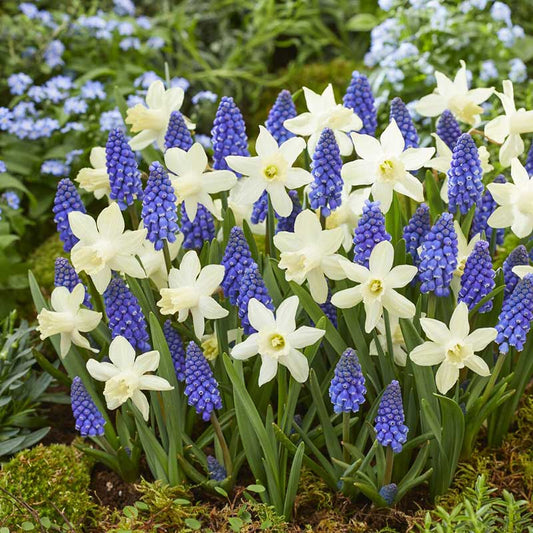
Snow Baby Daffodil & Muscari Collection
Fragrant blooms on sturdy stems make excellent cut flowersSaleSnow Baby Daffodil & Muscari Collection
Fragrant blooms on sturdy stems make excellent cut flowersRegular price As Low As $18.95Regular priceUnit price per$24.99Sale price As Low As $18.95Sale -
main-collection-product-grid
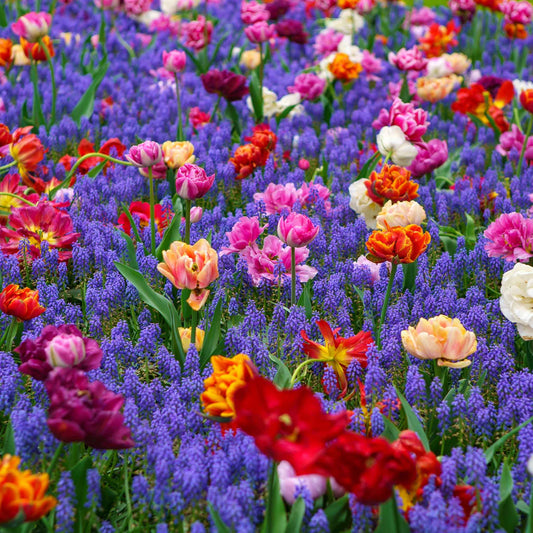
Double Tulip & Muscari Collection
Plant this mix for a professional-looking bedSaleDouble Tulip & Muscari Collection
Plant this mix for a professional-looking bedRegular price As Low As $10.95Regular priceUnit price per$25.99Sale price As Low As $10.95Sale -
main-collection-product-grid
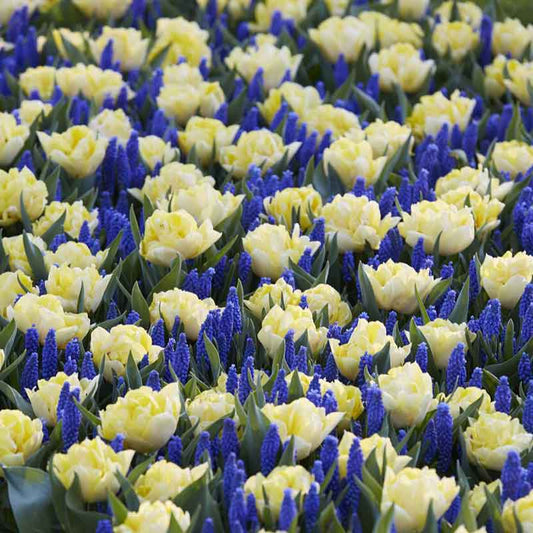
Secret Perfume Tulip & Muscari Collection
Versatile mix for landscaping or cut flowersSaleSecret Perfume Tulip & Muscari Collection
Versatile mix for landscaping or cut flowersRegular price As Low As $18.95Regular priceUnit price per$25.99Sale price As Low As $18.95Sale
Planting the best grape hyacinth bulbs
- 8 grape hyacinth bulb varieties
- Easy to grow and maintain
- Colorful, carefree, vigorous, and pleasantly scented
- Offers small blooming, tight clusters of bright blue, purple, or white flowers
The best grape hyacinth bulbs (or muscari) online
Grape hyacinths, also called muscari, bloom in mid-spring. While they were once considered to be a member of the liliaceae family, grape hyacinths have since been reclassified into the asparagaceae. Other names for this unique flower include bluebells and bluebonnets. They are native to Greece and Asia and vary in color from pale to navy blue. Their size, color, and scent make them perfect for lining the edges of containers, paths, walkways, and rock gardens. It is also important to note that planting these gorgeous flowers near fruit trees can increase the likelihood of their pollination! Grape hyacinths can be used for dried flower arrangements in addition to being used in traditional herbal medicine for diuretic and stimulant properties.
How to grow and care for grape hyacinth (muscari)
Plant grape hyacinth in the fall, when the soil in your region has begun to chill, and continue to do so until the soil freezes in cold areas. Plant your outdoor grape hyacinths by late November if you live in a warm climate so the bulbs have time to root.
Grape hyacinths prefer full sun or partial shade with average, well-draining, sandy soil holding a pH between 6.0 and 7.0. Plant about 10 grape hyacinth bulbs per square foot. Dig holes that are four inches deep and add a handful or two of compost to each hole. Plant your bulbs with the pointed end facing up approximately three inches below the soil level. Water well after planting to settle the soil. Luckily, these beautiful blooms are both rabbit and deer resistant. Additionally, they are drought tolerant and require very little care after planting. You can expect these blooms to reach heights between eight inches and 1 1/2 feet tall.
Companion plants for grape hyacinth
Your grape hyacinth leaves will continue to photosynthesize after flowering to contribute energy to the bulb's growth the following spring. The bulbs will then fall dormant for the rest of the summer. During the summer, the bulbs will stay moisturized with just normal rainfall and will not require additional watering.
Companion plants for grape hyacinth include crocus, tulips, and daffodils!
For more information about planting, growing, and caring for grape hyacinth bulbs, see the Grape Hyacinth Bulb Planting Guide.







